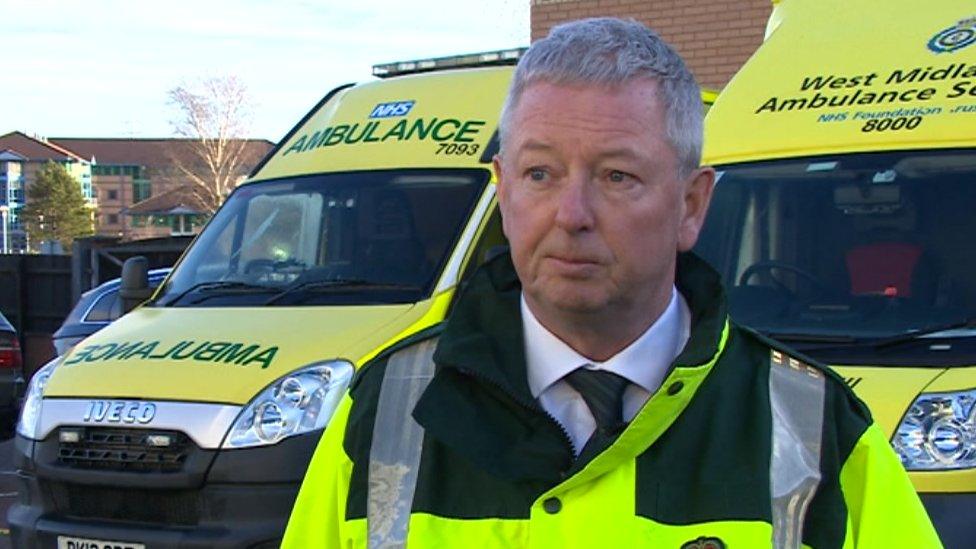Plan to tackle ambulance handover delays at hospitals
- Published

Like many other A&Es, Telford's Princess Royal emergency unit has faced significant pressure
A new 32-bed ward and earlier discharges are being proposed to reduce pressure on two emergency units and cut ambulance delays.
Shropshire's Clinical Commissioning Groups (CCGs) said change was needed, external because the system in the county was "not sustainable".
It said this was affecting "patient safety and patient outcomes".
Ambulances have faced long waits to hand over patients, because of bed shortages at hospitals in the county.
The West Midlands Ambulance Service has said this has prevented its staff from being sent out on other jobs.
It has called for action to reduce the delays at accident and emergency departments and in May, its Director of Nursing, Mark Docherty, warned it was dealing with a "catastrophic situation".
Earlier in June, one crew waited more than 25 hours at the Royal Shrewsbury Hospital.
According to the NHS, patient handovers should be completed in 15 minutes and none should be waiting more than 30 minutes.
A report, prepared by the Shropshire and Telford CCG, said a shortage of staff, building limitations and the coronavirus pandemic had all affected the hospitals' ability to process patients quickly.
It also noted the rising cost of living, particularly fuels costs, were having an impact "on choices staff are making about remaining in or entering the health and social care profession".
As well as the new ward and the changes to patient discharges, it suggested changes to ward layouts, a review of rehabilitation provision, support for care homes to reduce bed-blocking and more work to help patients find alternatives to A&E.
It said it also wanted to ensure the non-emergency 111 number was used as the "primary route to access urgent care".
The report said these changes would be developed over the summer, to ensure the health service in Shropshire was prepared by the time demand increases in the winter.

Follow BBC West Midlands on Facebook, external, Twitter, external and Instagram, external. Send your story ideas to: newsonline.westmidlands@bbc.co.uk, external
- Published9 June 2022

- Published25 May 2022

- Published19 May 2022

- Published6 April 2022

- Published5 March 2022

- Published14 January 2022

- Published30 December 2021

- Published23 November 2021
